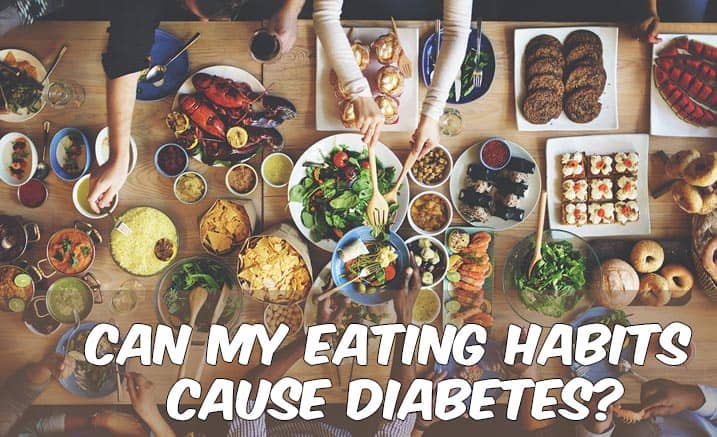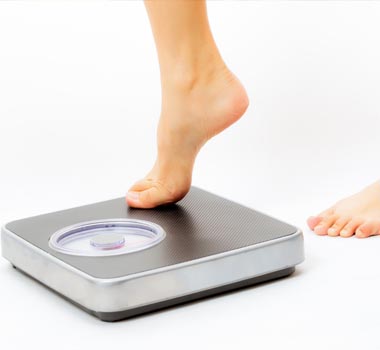
If there were a magic pill, completely eliminating your risk of developing diabetes, would you take it? If you could guarantee your health would never deteriorate, would you be interested in hearing more? Truth is, we cannot change our genetics or certain risk factors, such as ethnicity. But, there are some risk factors you can take charge over. You can be in control of many habits, some of which contribute to chronic diseases.
Eating specific foods does not automatically cause diabetes. One high-sugar snack or one high-fat meal does not result in diabetes. Rather, it’s lifestyle and lifelong habits and trends that increase the potential of developing diabetes. Here are some tips to reduce your risk through eating more healthfully.
Contents
Maintain a Healthy Weight
Obesity and overweight are directly associated with type 2 diabetes. The Centers for Disease Control (CDC) reports that in the United States, one-third of adults and 17% of youth are classified obese (BMI > 30). The trend continues to climb every year. The epidemic of pediatric obesity contributes to the increased incidence of children developing type 2 diabetes. Reducing weight only 5% can reduce risk of developing diabetes dramatically. Keeping weight at a healthy level is key in avoiding diabetes.
Move Your Body

Incorporating movement into your daily routine by walking 10 minutes on your lunch hour, washing your own car, mowing your yard, and parking farther away from your destination can add up. And, don’t let your busy schedule excuse you from physical activity. Studies show that incremental exercise, such as three 10-minute walks each day, provides equivalent health benefits to one 30-minute walk. With a goal of 10,000 steps per day, your body will experience improved muscle tone, cardiovascular benefits and brighter mood.
I suggest reading the following:
Choose Lower Glycemic Index Foods
Concentrate your starch and grain intake on those foods that require less work for your endocrine system. Eating whole grains, brown rice, whole wheat pastas, fruits and vegetables are healthier choices than white bread, refined grains and sugary desserts. The glycemic index is a relative measurement based on how your blood glucose is affected by a particular food. The higher the glycemic index of a food, the higher blood sugar will rise. Occasionally eating a high GI food will not cause diabetes.
Rather, a long-term diet primarily consisting of high GI foods can contribute to the increased risk of developing diabetes. Lower GI foods, typically higher in fiber, have other health benefits such as reducing risk of colorectal cancers and cardiovascular diseases.
Drink More Water

At-Home Meals More Often
Healthy family meals should not be a thing of the past, but a staple of today. Too many families are grabbing drive-thru burgers on their way to cub scouts or ordering pizzas after a long day at work. Truth is, eating out leads to overeating….. overeating leads to overweight and obesity….. obesity is strongly associated with diabetes risk. Meal planning and cooking at home takes a bit more planning and organization, but it can be done. And, isn’t that extra time investment worth it if it means reducing your diabetes risk?
Increase Vegetables
Greens, reds, yellows, oranges…. All the colors of the rainbow! Vegetable intake is sadly low in the United States, where the most popular vegetable is French fries. Half of your plate should be covered in non-starchy vegetables. Stir-fry, salads, steamed…. So many different ways to enjoy these healthy plants. Kids cringe and crinkle up their faces at vegetables served? Don’t despair – sometimes it takes up to 14 exposures to a food for a child to actually like it. Keep trying, parents. And, model healthy eating for your kids by enjoying new and familiar vegetables.
Smart Snacking
High-fat fried foods and refined sugars and flours are the mainstay of most snack foods. While potato chips don’t directly cause diabetes, the increased calories, fat and sugar from chips, snack cakes, cookies, candy and crackers should be limited. Be a savvy shopper – some health claims on food labels of snack foods mislead consumers. When fruit gummy snacks tout that they provide high amounts of vitamin C, don’t let that distract you from the fact their primary ingredient is high-fructose corn syrup. Read ingredients and Nutrition Fact labels wisely, and make smart shopping choices to result in smart snacking.
Healthy Fats and Oils

Additionally read these:
Before you reach for that iced donut and triple mocha frappucino, think about the overall affect your diet has on your risk of diabetes. Making small changes each day leads to an overall lifelong healthier lifestyle. Thanks for reading this article and share with your friends who might need it.
TheDiabetesCouncil Article | Reviewed by Dr. Christine Traxler MD on June 01, 2020









